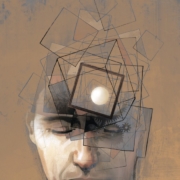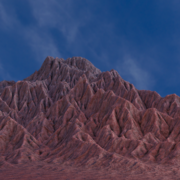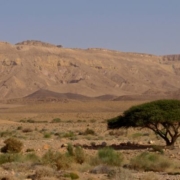Tu BiShvat: the Winter of our Redemption
 Justice is rarely calm. As the Egyptians retrench themselves in iniquity and race forward to recapture their Israelite slaves, God sweeps them into the raging waters of the sea. Rashi on Exodus 14:27 explains:
Justice is rarely calm. As the Egyptians retrench themselves in iniquity and race forward to recapture their Israelite slaves, God sweeps them into the raging waters of the sea. Rashi on Exodus 14:27 explains:
כאדם שמנער את הקדרה, הופך העליון למטה והתחתונים למעלה, כך היו עולים ויורדים ונשברים בים,
Like a person stirring a pot, moving the top to the bottom and the bottom to the top, so were the Egyptians rising, falling, and breaking in the sea.
This image is a potent symbol of social justice. Raising the oppressed frequently involves lowering the oppressors. Fixing society requires shattering norms that reify injustice. We always read the story of this final showdown with the Egyptians close to the holiday of Tu B’shvat.
Tu B’Shvat is described as Chag Hailanot, the Festival of the Trees. However, the word “אילנות” doesn’t appear anywhere in the Torah, Prophets, or Writings. Although the Torah speaks a lot about trees, the word generally used is עץ. The Rabbis observe that the constellation of letters in ”אילנות” only appears in one place in the Bible, in our verse from above, Exodus 14:27. Once the sea splits and the Israelites are on dry land the verse says: וַיָּ֨שׁב הַיָּ֜ם לִפְנ֥וֹת בֹּ֙קֶר֙ לְאֵ֣יתָנ֔וֹ – the sea returned to its normal state/power. For trees as well, this is a time of coming back to themselves. According to Rashi, this is the day where the sap of a tree starts to rise up inside of itself.
This corrective resurgence is emblematic of the month Shevat, whose Mazel, or astrological sign, is the bucket (d’li). It must first be lowered down in order to be able to draw up the water from the well. Life is filled with downs and ups as part of the meaningful struggle to be a healer in a broken world. Finding the balance of productive effort, as opposed to the avodos perech/the work of enslavement in Egypt, is alluded to in the role of the Tzadik, the righteous whose light is invested in the future, represented in the letter צ which corresponds to the month according to Sefer Yetzera.
Bereishit Rabbah 66:4 teaches that the wicked are initially at peace and later experience suffering. This may be because if one is in a place of privilege not to need to struggle for oneself, one sins by not being proactive for others. The righteous, on the other hand, struggle at first and then are able to achieve and enjoy a better state of being. It is perhaps for this reason that Tu B’shvat is the only one of the four Rosh Hashanas that is halfway through the month and not at the beginning, modeling the work that first needs to be done in order to be worthy of celebration.
According to the Ari Z”l, the 12 months of the year are reflected in the 12 possible permutations of the four letters of God’s name – ה,ה,ו,י. Each month has a corresponding verse that follows the same order of those four letters in that month’s permutation. The verse for the month of Shevat is הָמֵ֣ר יְמִירֶ֔נּוּ וְהָֽיָה־ה֧וּא (Leviticus 27:33), describing a sacrificial animal that has been improperly exchanged for another. The order of the letters in God’s name י-ה-ו-ה are at first presented out of order, with the ה and י switching positions. The final two letters, ו and ה are presented in the correct order of God’s name, alluding to the righting that happens in the middle of the month of Shevat.
Indeed, the correcting that occurs in Shevat has been preordained since Creation. Yalkut Shimoni on B’shalach 225 offers a different understanding of the phrase, וַיָּ֨שׁב הַיָּ֜ם לִפְנ֥וֹת בֹּ֙קֶר֙ לְאֵ֣יתָנ֔וֹ – the sea returned to its original condition. The Hebrew word תנאי means a contingent condition. The midrash explains:
א”ר יונתן התנה הקדוש ברוך הוא תנאים עם הים שיהא נקרע לפני ישראל הדא הוא דכתיב וישב הים לפנות בקר לאיתנו [י”ד, כ”ז] לתנאו שהתנה הקדוש ברוך הוא עמו
Rabbi Yonatan said, the Holy Blessed One made a condition [at creation] with the sea, that it would split for Israel, as the verse says, וַיָּ֨שׁב הַיָּ֜ם לִפְנ֥וֹת בֹּ֙קֶר֙ לְאֵ֣יתָנ֔וֹ – the sea returned to its condition that God had stipulated.
This midrash is curious. Why does God make a condition with the sea? God is all powerful and could simply demand that the sea obey. The midrash asserts that God wants the salvation of Israel at the sea to be part of the natural order, not a sudden divine intervention.
As soon as Israel walks through on the dry land, they become truly free and the Egyptians lose their power over them. The sea naturally then returns to its original strength. God programs this sequence of events into the natural order. Freedom will always lead to the disempowering of oppressors.
Earlier, in Exodus 14:10, the Israelites looked up and saw the mighty Egyptian army, complete with horses, chariots and warriors, bearing down on them. They were trapped by the sea, with nowhere to run, and they were terrified. Their situation had never been more dire. As they explained to Moses, “it would have been better for us to be slaves in Egypt than to die here in the wilderness.” (Exodus 14:12). It was precisely at this dark moment, when they were too exhausted to visualize a path forward, that their ultimate salvation began.
Tu B’shvat is a yearly celebration of this kind of moment. It always falls in the dead of winter, when the trees appear lifeless and vulnerable. Tu B’shvat reminds us that even when we feel like we have nothing left in us, the process of regeneration and redemption may already have begun. When we reinvest in the fight for justice and equality, the disruption of systemic oppression will be as natural as the changing of the seasons.


R. Wendy Amsellem teaches at Yeshivat Maharat. R. Mike Moskowitz is a founding builder at Bayit.









